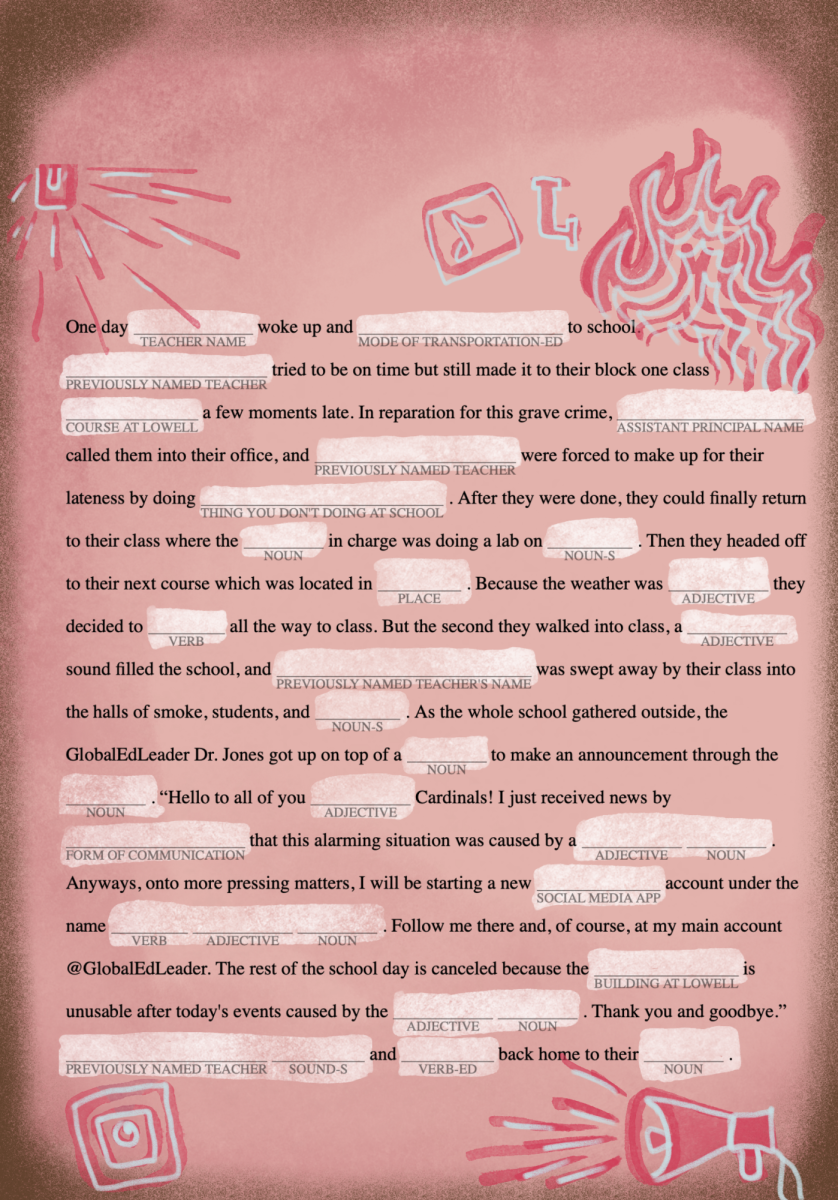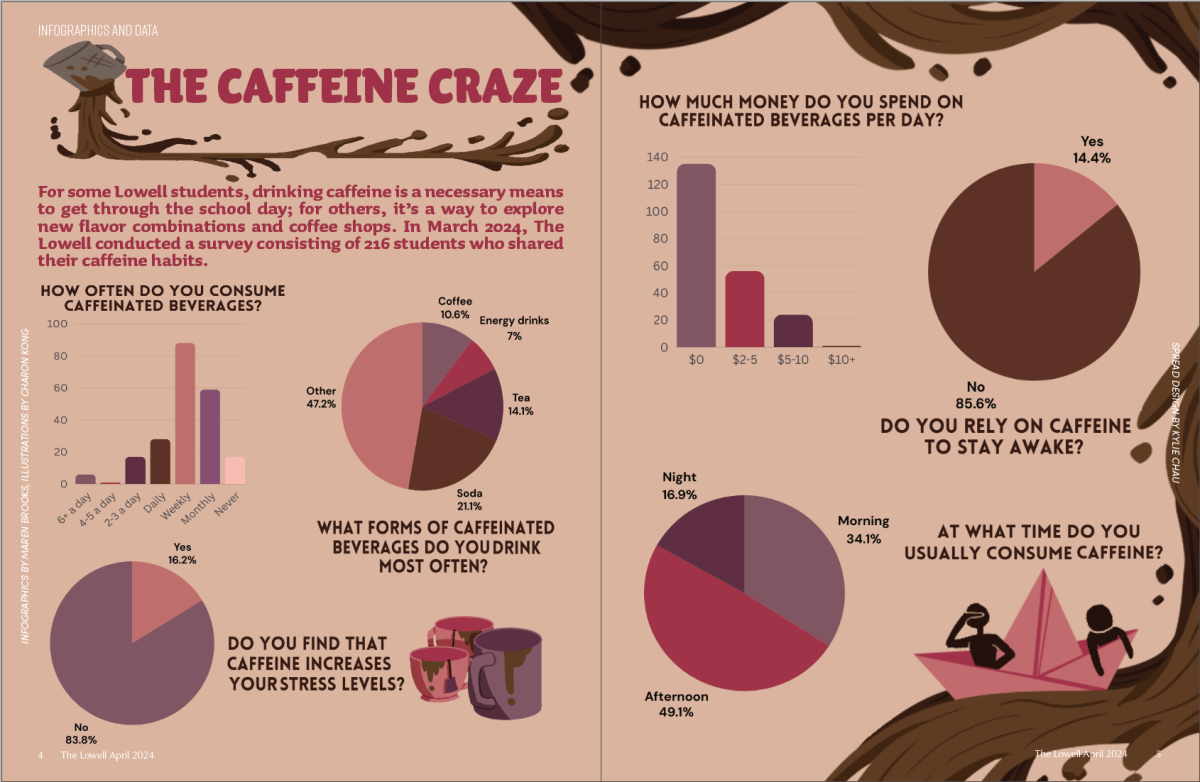Imagine two Lowell students with different teachers are both taking Algebra 1. They quickly realize their grades have become a reflection of their teacher’s name rather than their level of effort — one easily achieves an A grade with hardly any homework, while the other is overloaded with projects and pop quizzes. How is this fair? They wonder. Although Lowell students often take the same courses, their grades for the same level of work greatly vary based on the teacher they take it with. These grade discrepancies often result from drastically different policies on late work, test curves or corrections, and the amount of homework. Lowell administration must implement school-wide standards on grading policies like late work and extra credit, while teachers of the same course must ensure an equal workload for their students.
While some may argue that standardized class policies and assignments strip teachers of the freedom to follow their own teaching styles, teachers would still have broad control over how to present the content they teach. Today, teachers already follow the same state standards or Advanced Placement (AP) unit content, but they are still able to present the material in their own unique way. For example, AP Psychology teachers use different anecdotes or video examples to explain concepts while still teaching the same material and utilizing the same tests.
Lowell administration must implement school-wide standards on grading policies like late work and extra credit, while teachers of the same course must ensure an equal workload for their students.
Courses with more unified class policies lead to fairer learning. AP Environmental Science (APES) teachers have successfully implemented a model for what a shared standard curriculum could look like across Lowell. APES instructors share the same slideshows and Google Classroom for students across all classes to know what to expect while also making the day-to-day lives of teachers less stressful. If more classes adopted a single shared curriculum like the one seen in APES, it would make grades a better representation of student performance.
In addition, teachers must align their class policies for late work. Some teachers allow for late work to be turned in until the end of the grading period, while others will not accept work that is even a single day late without an excused absence note. As a result, two students can turn in an assignment late, and one student will receive full credit while the other receives a zero for the same work. This is unfair to students in the class as they receive a significantly lower grade for the same work.
The frequency and difficulty of assignments can also vary dramatically between teachers of the same course. Some social studies teachers assign dozens of pages of readings and notes, while others assign no homework, only asking students to study or complete work they didn’t finish in class. These varying workloads may seem insubstantial when considering a single course, but when a student has several teachers who assign greater workloads than other instructors of the same course, the negative effects on a student’s grades compound.
Lowell’s administration, department heads, and teachers all have a role to play in ensuring that students taking the same course have an equal opportunity to succeed through fair and equitable grading policies.
Test correction and curving policies must also be consistent to ensure fairness for students’ grades. For example, two students who get the same number of correct answers on an identical test could end up with vastly different final scores. While some teachers offer generous curves and opportunities for test corrections to earn back a majority of points lost, others don’t believe in extra credit and apply little to no curve to difficult tests. This is yet another example of how inconsistent grading policies result in grades that say more about which teacher a student had than how well the student learned the course content.
Lowell’s administration, department heads, and teachers all have a role to play in ensuring that students taking the same course have an equal opportunity to succeed through fair and equitable grading policies. By standardizing grading policies and the difficulty of assignments, students will have an equal chance at success in their class, and their grades will better reflect their effort and understanding of the course, not the policies and difficulty of their teacher.
















